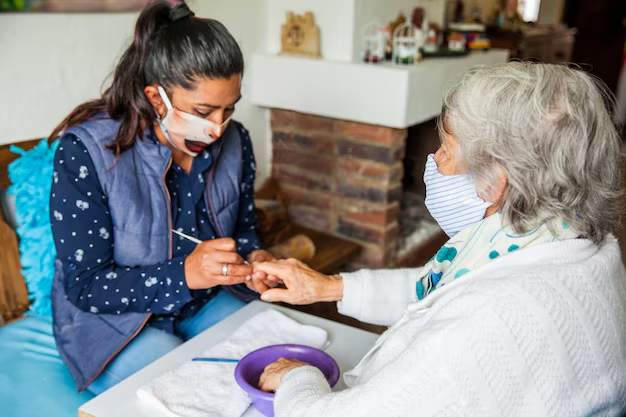Does Medicare Cover Home Health Care After You've Been in the Hospital?
Emerging from the hospital, many individuals face the challenge of needing continued care while transitioning back to their everyday lives. Understandably, one of the first questions that come to mind is, Does Medicare cover home health care after hospitalization? The simple answer is: Yes, but there are conditions. Delving deeper into these requirements, as well as exploring related financial assistance options, can provide clarity—and potential relief—as you navigate the path to recovery.
Understanding Medicare's Home Health Care Coverage
Medicare does offer home health care benefits under certain circumstances. To qualify, an individual typically needs to meet these specific criteria:
- Be under the care of a doctor who creates a care plan for you and reviews it regularly.
- Require skilled nursing care (like wound care) or therapy services (such as physical, speech, or occupational therapy).
- Be homebound, meaning leaving home isn’t easy and involves considerable effort, thus leaving the home only occasionally or for medical appointments.
- Receive services from a Medicare-certified home health agency.
Key Services Covered
When qualified, Medicare's home health care can include:
- Part-time skilled nursing care
- Physical therapy
- Occupational therapy
- Speech-language services
- Medical social services
- Part-time home health aide care
Notably, Medicare does not cover 24-hour-a-day care at home, meals delivered to your home, or personal care like bathing or dressing provided without the need for skilled nursing or therapy.
Exploring Additional Financial Aid Options
While Medicare covers certain aspects, some services may fall outside of this coverage and necessitate out-of-pocket expenses. To navigate these expenses, consider exploring other government aid programs or financial assistance options:
Government Aid Programs
- Medicaid: For those with limited income, Medicaid can provide additional coverage for home health care needs that Medicare may not cover.
- Veterans' Benefits: Veterans can access specific health care services, including home care, through the Department of Veterans Affairs.
Financial Support and Planning
- Home and Community-Based Services (HCBS) Waivers: Depending on your state, HCBS waivers may allow you to receive care at home or in the community, instead of in a hospital or institutional setting.
- Financial Assistance Programs: Various nonprofit organizations and community resources offer financial aid for healthcare expenses.
Debt Relief and Credit Solutions
- Medical Debt Relief: Organizations and programs specialize in assisting individuals manage and reduce medical debt. Considering professional advice here can help in planning a manageable financial path.
- Credit Counseling Services: These services provide personal financial education and advice, vital for understanding and organizing your health care finances.
Educational Opportunities on Health Care Funding
Understanding the landscape of health care funding and coverage is crucial. Engage with educational resources to stay informed:
- Community Workshops and Seminars: Many non-profits and community centers offer educational sessions to help you understand Medicare and other health care funding options.
- Online Courses and Webinars: Leverage online learning platforms that cover personal finance management, with modules focused on healthcare expenses.
Your Takeaway Toolkit 🎒
Here are some relevant resources and options to explore for financial assistance:
- 💰 Medicaid: Extra coverage for those with limited income.
- 🏥 Veterans’ Benefits: Services available through the VA for eligible veterans.
- 📜 HCBS Waivers: State-dependent services for home or community-based care.
- 📞 Credit Counseling: Advice for managing health care debt.
- 🗓️ Educational Workshops: Local sessions to learn more about financial management in healthcare.
By understanding what Medicare covers and exploring other avenues, you can better manage the transition from hospital to home, ensuring that the focus remains where it belongs: on recovery and well-being.

Related Topics
- a Medical Provider That Accepts Medicare Assignment Must
- a Medical Provider That Accepts Medicare Assignment Must Quizlet
- a Medicare Patient Received Treatment That Isn't Covered By Medicare
- a Medicare Patient Receives Treatment That Isn't Covered By Medicare
- a Medicare Supplement Basic Benefit Is Quizlet
- a Medicare Supplement Companies
- a Medicare Supplement Policy Is Quizlet
- a Medicare Supplement Policy Must Not Contain Benefits Which
- a Patient Received Treatment In August Medicare
- Am I Eligible For Medicare
